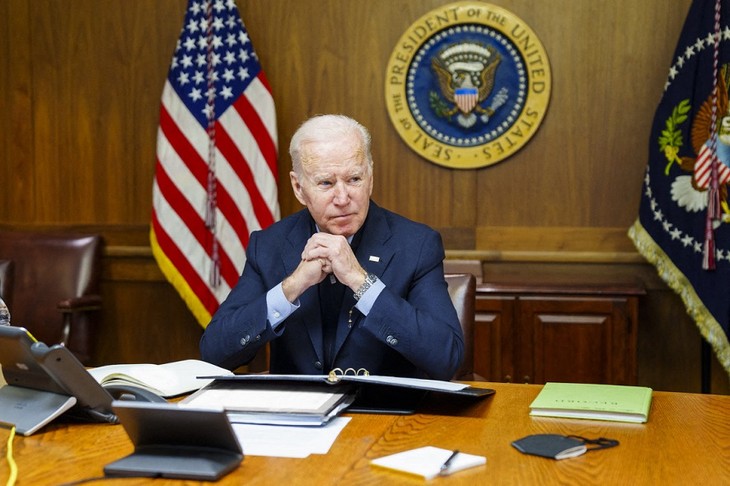(VOVWORLD) - US President Joe Biden has announced a new strategy for a free and open Indo-Pacific, which is part of its effort to increase its influence in the region. The US and the three other members of “the Quad” are committed to building a free and open Indo-Pacific politically and economically.
 US President Joe Biden US President Joe Biden |
The US’s new Indo-Pacific Strategy was announced following the US Secretary of State’s visit to Japan, South Korea, and several Pacific islands.
Key elements of the new strategy
The White House released its 12-page Indo-Pacific Strategy on February 11, pledging to strengthen alliances, build new partnerships, and invest more in the region. President Biden said Washington will strengthen its ability to confront provocative actions targeting the US or its allies and partners, and will enhance cooperation with countries in Southeast Asia and other regions.
The Strategy was unveiled during Secretary of State Antony Blinken’s visit to the Indo-Pacific. The spirit of a free and open Indo-Pacific was affirmed in a joint statement at the Quad’s Foreign Ministers Meeting in Melbourne on February 11. The Foreign Ministers of Australia, the US, India, and Japan pledged to deeply engage with regional partners in capacity building, technical assistance, ensuring freedom of navigation and overflight, dealing with challenges such as illegal fishing, and promoting the safety and security of maritime communication lines.
Strategic competition and challenges
The Indo-Pacific has the world’s three biggest economies – the US, China, and Japan. It has 7 of the 8 fastest-growing markets in the world – India, China, Bangladesh, Timor Leste, and Papua New Guinea and 7 of the 10 largest military forces – the US, China , India, Japan, Korea, Pakistan, and Australia. Because the Indo-Pacific is the site of fierce competition for natural resources, the world powers have all adopted strategies to boost their influence and protect their interests.
Biden’s new Indo-Pacific Strategy aims to handle emerging threats such as the COVID-19 pandemic, supply chain disruptions, security risks, and strategic competition.
Experts say the world powers have been reinforcing multilateral cooperation to generate collective strength, protect the common interests of the international community, and promote regional peace, stability, and prosperity. But recent changes have created new challenges for all Indo-Pacific countries, including small and developing countries, who now need strategies of their own to ensure their national interests are not submerged by the competition of the world powers.